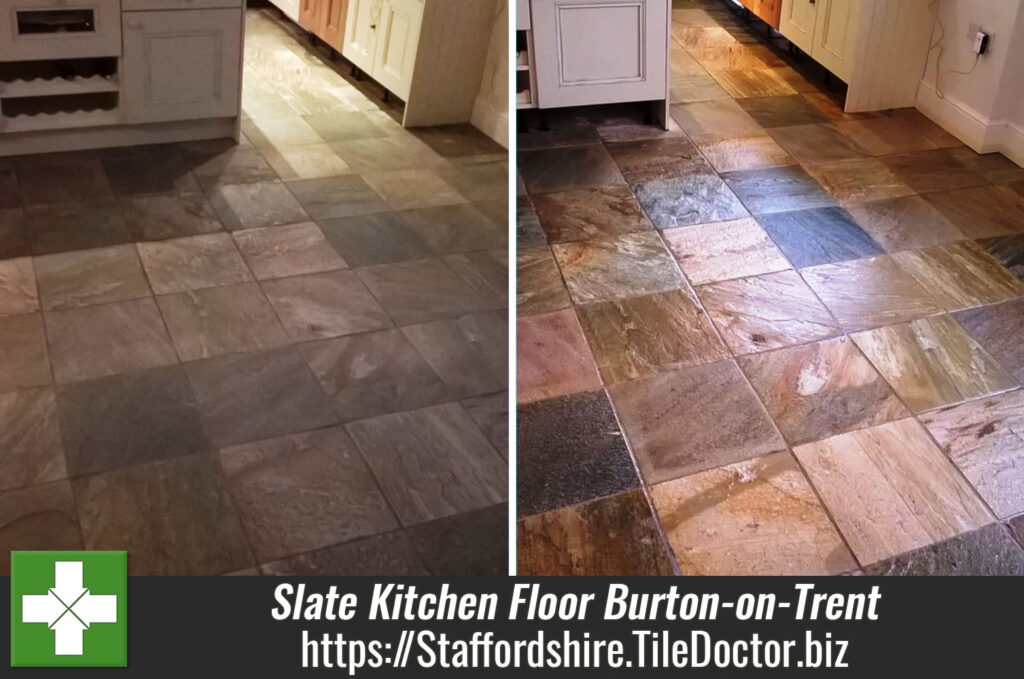This slate floor was installed in the kitchen of a house in the town of Burton-on-Trent in Staffordshire. As the name suggests, Burton-on-Trent sits alongside the River Trent, which runs through most of the northern Midlands. The old sealer on my client’s Slate tiled kitchen floor had completely worn off and, as a result, dirt had become ingrained in the pores of the stone which was now in need of restoration.
Slate is typically a very durable tile, having been used both residentially and commercially for hundreds of years but, in particularly high traffic areas like kitchens it’s important to maintain the sealer or dirt will get into the pores of the stone making the floor difficult to clean effectively and leading to the tile looking worse for wear. I was commissioned to get the floor back to good health and I prescribed a deep clean and re-seal.
 |
 |
Cleaning a dirty Slate tiled floor
To start the cleaning process, I first diluted Tile Doctor Pro-Clean and water and left it to soak into the floor for a while so it could get to work lifting out the dirt from the pores of the stone. Pro-Clean is a versatile, high alkaline cleaner safe to use on natural stone which can be diluted in different strengths depending on the level of soil build-up. In this case, I opted for a reasonably strong solution due to the significant amount of ingrained dirt (as shown by the photographs).
After about ten minutes I started working in small sections to agitate the tiles with a scrubbing pad attached to a rotary machine. The pad and machine take a lot of the hard work out of the cleaning process although I usually do the grout by hand using a stiff scrubbing brush. Once I had finished the initial clean, I rinsed the entire floor with water, before repeating the process multiple times until I was satisfied that I had got the Slate tiles as clean as possible.
Sealing a Slate Tiled Floor
After completing the clean, I left the house for a few days to allow the floor enough time to dry before being sealed. As any Tile Doctor will tell you, all moisture must be removed from a tiled floor before sealing it, as it has the potential to compromise the effectiveness of the sealer.
Once I was satisfied that the floor was completely dry, I sealed the tiles using four coats of Tile Doctor Seal & Go, which provides a stain resistant surface seal and a nice, low sheen finish. Seal & Go is a water based product (so no smell) and is suitable for use on a wide variety of unsealed, porous surfaces as Slate, Victorian tile, Sandstone, and textured Quarry tiles.
 |
 |
As you can see, the overall results were fantastic and my client was really happy with the difference I’d been able to achieve.


Sealers do wear down over time depending on floor traffic and what products are used to clean the floor (don’t use anything even mildly acidic) and this is when dirt can become ingrained in the stone, so if you do want to keep your floor looking its best talk to Tile Doctor their regular maintenance service that will ensure your sealer is kept topped up.